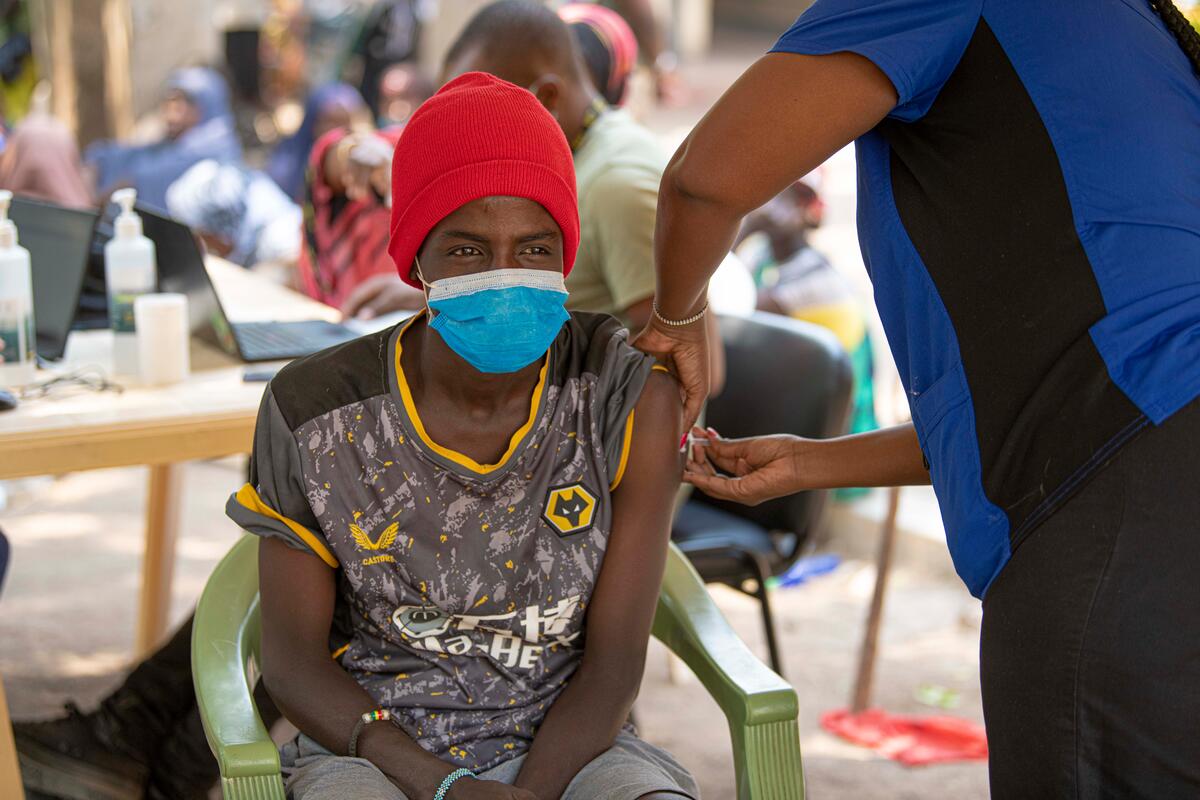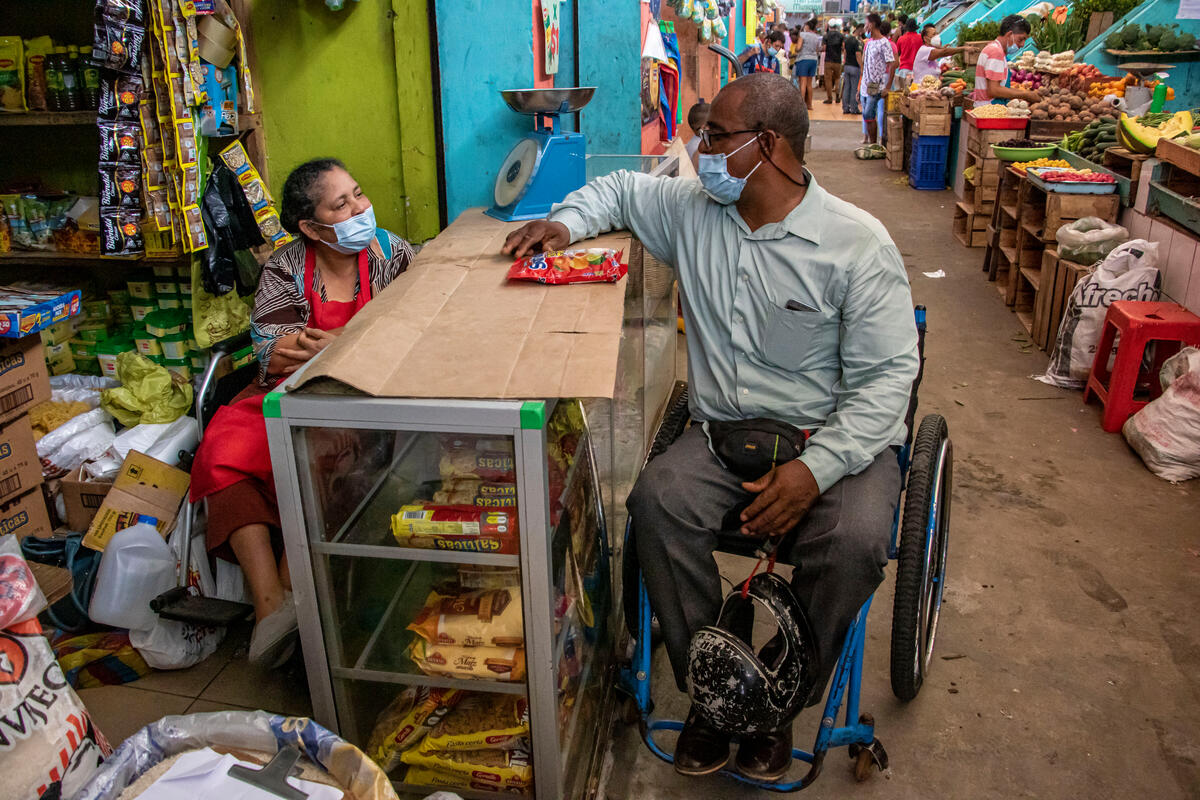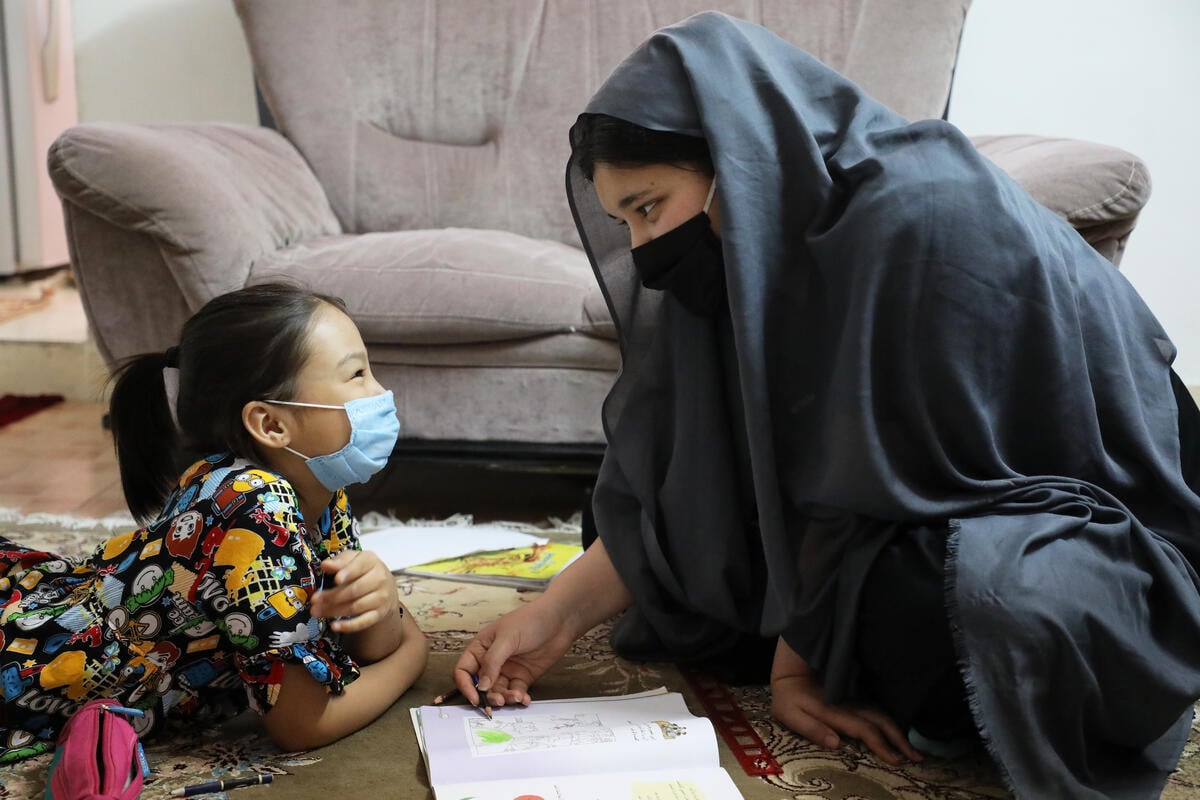UNHCR responds to public health threats in Dadaab refugee camps
UNHCR responds to public health threats in Dadaab refugee camps
Following indications of an outbreak of acute jaundice (largely caused by hepatitis E virus) among refugees in Dadaab camp complex in northern Kenya, UNHCR is running a comprehensive public health response focusing on improving sanitation facilities and promotion of good hygiene practices. With more than 473,000 inhabitants, the overcrowded Dadaab refugee complex - now comprising five camps - is the largest refugee settlement in the world.
As of last week, 223 cases of acute jaundice were reported across all five camps in Dadaab. Four fatalities have been confirmed, all of them women who had just given birth. The first case of jaundice was detected in Ifo 2 refugee camp six weeks ago. Most of the hepatitis-E cases have been registered in camps with inadequate number of latrines and among new arrivals with poor hygiene habits. There is no vaccine for Hepatitis E virus although one is in an initial phase of development in China.
The incubation period for jaundice is one month and we fear that the number of cases may continue to grow. In addition to raising the health, water and sanitation standards and awareness about the importance of hand-washing, use of latrines, food and water hygiene, refugee health workers are also being trained in active search for new cases and surveillance.
Meanwhile, the Kenyan authorities have reported some 80 cases of cholera in Kenya's North Eastern Province, mainly in a settlement close to the border with Somalia. It is reported that 12 deaths have occurred on the Somalia side. There are no deaths in Dadaab camps where 18 cases have been identified among refugees who had contacts with affected communities near the border. UNHCR has established a response team involving health, water and sanitation partners and daily coordination is maintained at the camp level. A cholera isolation ward has been opened at Hagadera camp hospital and additional staff have been trained to handle cases. At present, there are adequate resources to manage 100 cholera patients. Cholera treatment centres have been set up at the camp hospitals.
We are concerned that water-borne diseases could spread with the arrival of the rainy season in October and November. Forecasts for the region are for heavier than average rainfall. This could adversely affect the sanitation situation in Dadaab as parts of the camp complex are prone to flooding. However, bad hygiene is the major cause of infection for both diseases and our public health efforts in Dadaab camps are addressing this issue in particular. In addition, construction of a further 6,000 latrines has started this week.
Despite a difficult security situation and restrictions on movements of staff in Dadaab, all essential services and provision of aid to refugees continue uninterrupted.
For further information on this topic, please contact:
- In Kenya (Dadaab): Mans Nyberg on mobile +254 704 807 205
- In Kenya (Nairobi): Emmanuel Nyabera on mobile +254 733 995 975
- In Geneva: Andrej Mahecic on mobile +41 79 200 7617









